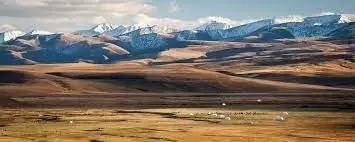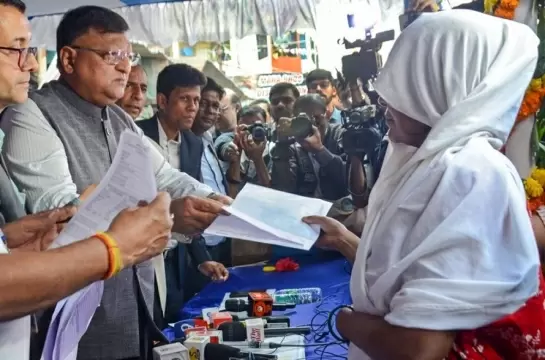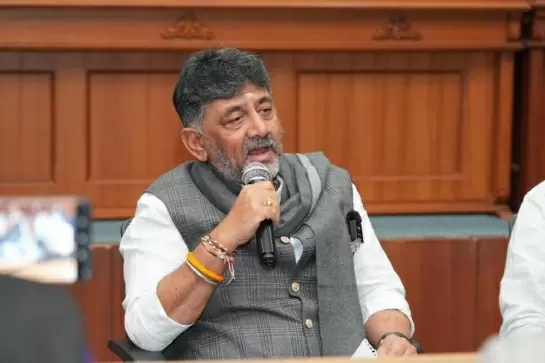Ahead of UN climate talks, Tibetans concerned over Tibet environment
30-September-2021

With just over a month to go for the UN climate talks (COP26) in Glasgow, the Central Tibetan Administration (CTA), the government in exile, has expressed concern over the deteriorating environment in the highly fragile Tibetan Plateau.
The latest publication of the Environment and Development Desk of the Tibet Policy Institute, 'Tibetan Perspectives on Tibet's Environment', was released here on Wednesday by CTA President Penpa Tsering.
He said the book was a much-needed repository of information and facts valuable for the world to understand the environmental issues of Tibet over the last 10 years and its relevance to global climate change.
According to Tsering, having such a comprehensive book written solely by Tibetan researchers, some of whom have lived the experiences of the changing ecology of Tibet, offers an important aspect to the issue that is necessary and something that he noted is rarely found in books written by non-Tibetan researchers.
The book is an added value and important source of reference to the experts and researchers on Tibet's ecology, he said.
Tsering reiterated that the book was equally a call out to the Tibetans in exile to understand the significance of preserving Tibet's environment as well as to act responsibly.
"It is imperative that more Tibetan researchers, including writers and experts, contribute to disseminating factual information about Tibet and its environmental issues," he said.
He said the book also serves as a potential mechanism for the governments and world leaders in framing policies and making Tibet's environmental issue a substantial case.
He noted the book will be a contributing factor to those attending the forthcoming COP26 UN conference on climate change.
Environment and Development Desk Executive Head Tempa Zamlha explained the background context of the book, which is a compilation of reports, papers and articles prepared from 2010-2020.
Tibetan spiritual leader and Nobel laureate the Dalai Lama has been saying his homeland Tibet is currently vulnerable to climate change.
He has been emphasising that "climate change is not the concern of just one or two nations. It is an issue that affects all humanity and every living being on this earth and that there is a real need for a greater sense of global responsibility based on a sense of the oneness of humanity".
According to the Intergovernmental Panel on Climate Change's (IPCC) latest report, mountain and polar glaciers are committed to continue melting for decades or centuries.
Glacier mass loss is a dominant contributor to global mean sea-level rise. It may also cause low-likelihood, high-impact outcomes, characterised by deep uncertainty and sometimes involving tipping points.
In the context of the Hindu Kush Himalaya, the report says the mountain glaciers like in the Himalayas are included in the assessment, and human influence is responsible for the retreat of glaciers since the 20th century, and that is not only in the two poles but also mountain glaciers.
"Glaciers are also one of the slow responding parts of the climate system, so what we see now is not the retreat to expect from the warming we currently have. So, even if we stop emitting right now or admit to stopping global warming at 1.5 degrees Celsius, we will see a further retreat of glaciers. That is, of course, an important climatic impact driver because it has huge implications for freshwater availability in the region," it says - IANS
Opposition Moves to Impeach Justice G R Swaminathan; Kanimozhi Cites Loss of Public Trust
Akhilesh Yadav Slams Centre, Yogi Govt Over Pollution And SIR Drive
PM, HM Set Out To Become Historians But Became ‘Distorians’: Jairam Ramesh
Under-16s Blocked From Social Media In Australia As Ban Comes Into Force
Armed Man Arrested At Vijay’s Puducherry Rally Venue, Security Tightened









